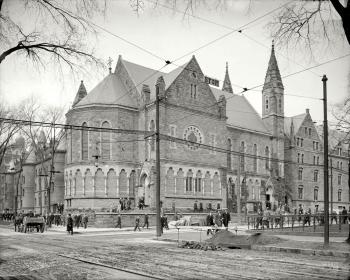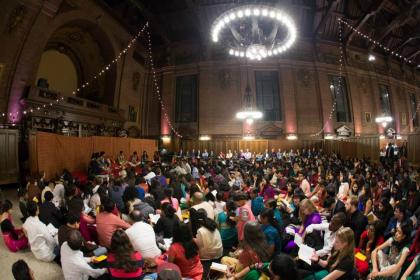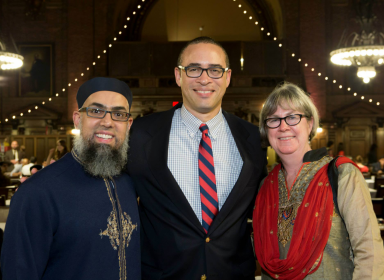
More than 250 years ago, Yale’s President Thomas Clapp and many of the one hundred or so students of Yale College took the unusual step of separating from the local Congregational church to create the first college church in America. Thus began Yale’s efforts to build a spiritual center for the life of the University and create religious offerings specifically focused on students. Over these centuries, Yale has never lost sight of the need for this center even as the religious landscape of the campus has changed. This plan will describe a re-imagined spiritual center for the University as a place where hospitality, care, respect, education, service and reconciliation will describe a crossroads where students from the world’s religious traditions can meet and learn together.
Between 2003 and 2008, Yale University took a series of dramatic decisions to re-imagine the shape of its historic Chaplaincy in response to a changing University. The University Council Committee on Religious and Spiritual Life at Yale (2003-2005) submitted a report in 2005 after conducting an external and internal review of the existing program and changing religious and spiritual needs. Yale responded to the report with a series of decisions: the University Chaplain’s position was separated from the University Church’s Pastor position, creating a University Chaplain’s position with overall administrative responsibility for religious and spiritual life and a Pastor’s position with responsibility for the historic campus church and Protestant Christian life on campus. A full-time Coordinator of Muslim Life position was created and filled. The campus church became an ecumenical student-focused congregation and disaffiliated from the national United Church of Christ. Financing of the Chaplain’s Office was reorganized under historic endowments donated for religious life. A new Agreement was developed by the members of Yale Religious Ministries to govern the many Yale religious groups’ relation to the University and to one another.

 As the 2005 decisions demonstrate, Yale’s approach is secular in that it does not favor or establish any particular religious tradition. Yale is open to students, faculty or staff without regard to their faith. But Yale is not secularist in that it does not seek to marginalize religious expression, so long as it is within the boundaries set for open and honest discourse in an academic community. People with religious and spiritual commitments are a critical part of the institution’s diversity.
As the 2005 decisions demonstrate, Yale’s approach is secular in that it does not favor or establish any particular religious tradition. Yale is open to students, faculty or staff without regard to their faith. But Yale is not secularist in that it does not seek to marginalize religious expression, so long as it is within the boundaries set for open and honest discourse in an academic community. People with religious and spiritual commitments are a critical part of the institution’s diversity.